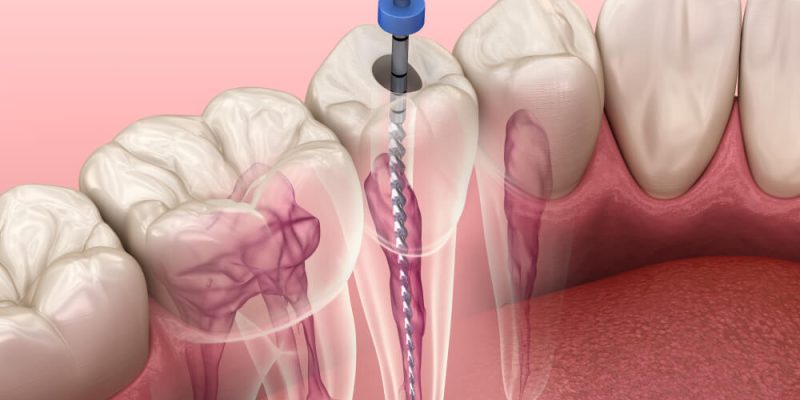Root Canal Treatment

What is Root Canal Treatment?
Root canal treatment is a dental procedure performed to treat the infected or inflamed dental pulp inside the tooth. The dental pulp contains nerves, blood vessels, and connective tissue, and when it becomes infected or damaged due to deep decay, cracks, trauma, or repeated dental procedures, it can lead to severe tooth pain and potential tooth loss. Root canal treatment aims to save the natural tooth by removing the infected pulp, eliminating the infection, and sealing the root canal to prevent reinfection.
Types of Root Canal Treatment
Conventional Root Canal Treatment:
This is the standard procedure performed to treat infected or inflamed dental pulp. It involves removing the pulp, cleaning the root canal system, and sealing it with a filling material.
Endodontic Retreatment:
In some cases, a previously treated tooth may experience reinfection or persistent symptoms. Endodontic retreatment involves reopening the tooth, removing the previous filling, and re-cleaning and sealing the root canal system.
Apicoectomy:
In certain complex cases or when conventional root canal treatment is not successful, an apicoectomy may be recommended. This surgical procedure involves removing the tip of the tooth’s root and sealing it to prevent further infection.

Why is Root Canal Treatment Done?
Root canal treatment is performed to alleviate tooth pain, eliminate infection, and save a tooth that would otherwise require extraction. It is done for the following reasons:
- Toothache Relief: Root canal treatment provides relief from severe toothache caused by deep decay or infection that has reached the dental pulp. It eliminates the source of pain, allowing you to regain comfort and oral functionality.
- Infection Removal: Infected dental pulp can lead to abscess formation, causing swelling and discomfort. Root canal treatment removes the infection, preventing its spread to surrounding tissues and reducing the risk of complications.
- Preservation of Natural Tooth: Saving your natural tooth through root canal treatment is preferred whenever possible. Preserving your natural tooth maintains proper chewing ability, prevents adjacent teeth from shifting, and maintains the natural appearance of your smile.
- Cost-Effective Solution: Root canal treatment is a cost-effective alternative to tooth extraction followed by tooth replacement options like dental implants or bridges. It allows you to retain your natural tooth structure, avoiding the need for additional restorative procedures.
